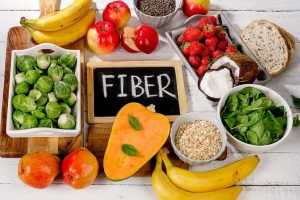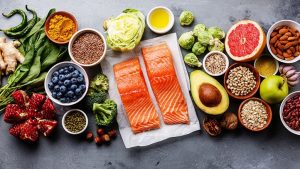Cholesterol – Clearing Up the Confusion
Cholesterol: Clearing Up the Confusion
written by: Laura Jeske
Are eggs bad for you? When it comes to nutrition and heart health, this is a question that seems to be asked constantly. Eggs are naturally high in dietary cholesterol, a fatty substance that has long been thought to increase levels of cholesterol in your blood. High blood cholesterol is a major factor in determining risk of heart disease. According to the Centers for Disease Control and Prevention, heart disease is the leading cause of death in the United States, contributing to approximately 25% of deaths annually. Heart disease is actually an umbrella term that encompasses a range of diseases, including atherosclerosis (hardening and narrowing of the arteries), heart attack, heart failure, arrhythmia (abnormal heart rhythm), stroke, and heart valve problems.
Cholesterol was first associated with heart disease in the early 1900s, but the lipid hypothesis – the idea that there is a direct link between cholesterol levels and heart disease risk – didn’t catch on immediately. It wasn’t until the 1950s that research indicated a correlation did exist between the two, and physicians began recommending people cut back on high cholesterol foods, like eggs. Since then, the associations between heart disease, cholesterol, and diet have been studied extensively. New research is moving away from the idea that cholesterol in food has much impact on blood cholesterol, but current guidelines continue to recommend maintaining low blood cholesterol levels in order to reduce the risk of heart disease.
There are two main types of cholesterol: LDL, the “bad” cholesterol, circulates in your blood and can clog your arteries; HDL, the “good” cholesterol, removes harmful cholesterol from your bloodstream. While it makes logical sense that eating cholesterol in food will increase cholesterol in your blood, it’s not quite that simple. Several dietary factors influence blood cholesterol levels. There isn’t a lot of good evidence that dietary cholesterol has a significant impact on blood cholesterol for most people. In fact, the most recent federal dietary guidelines removed previous limits on dietary cholesterol, stating it is no longer a nutrient of concern. Instead, the focus is on three other factors:
Fat: Limiting fat is often the first thing that comes to mind when people think of a heart-healthy diet. However, not all fat is detrimental. Fat comes in three primary forms: saturated, unsaturated, and trans fat. When it comes to cholesterol and heart health, evidence shows that trans fat and saturated fat increase harmful LDL cholesterol and that trans fats in particular also decrease beneficial HDL cholesterol. Unsaturated fats, on the other hand, are considered heart-healthy and increase HDL cholesterol while lowering LDL cholesterol.
Sugar: The connection between sugar and cholesterol is a relatively recent discovery. Added sugars in the diet have been shown to decrease HDL cholesterol, and may increase LDL cholesterol. Sugar also increases levels of blood triglycerides, fats that, along with LDL cholesterol, are a risk factor for heart disease.
Fiber: Dietary fiber, particularly soluble fiber, effectively lowers LDL and total cholesterol levels by binding cholesterol and inhibiting its absorption into the bloodstream.
What to Eat for Healthy Cholesterol Levels?
Keeping in mind that diet is not the only factor affecting cholesterol levels certain foods do have an impact so diet is an important consideration.
Add these high-fiber foods into your diet:
- Fruits and vegetables
- Legumes, like beans and lentils
- Whole grains, like oatmeal, brown rice, and barley
Replace foods high in trans and saturated fats with heart-healthy unsaturated fats
- Limit processed foods, baked goods, red meat, and butter
- Add oils, nuts and nut butter, avocado, and fatty fish
Limit foods high in added sugar
- Processed foods – almost all contain some amount of added sugar
- Sweetened beverages, like soda, sports drinks, sweet tea, and juice drinks
- Desserts, like candy, ice cream, cake, and cookies
So, what about eggs?
Though eggs do contain a small amount of saturated fat, they actually contain more unsaturated fat, plus a host of other beneficial nutrients. Feel free to include eggs in your heart-healthy diet.
Editor’s Note: Laura is a dietetic intern from Virginia Tech (go Hokies!). She spent the past two weeks working with the programs team at Manna Food Center learning about food insecurity and community nutrition education. She loves lentils and particularly enjoyed teaching Manna staff all about healthy protein and fat.







